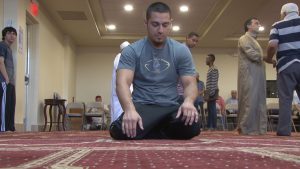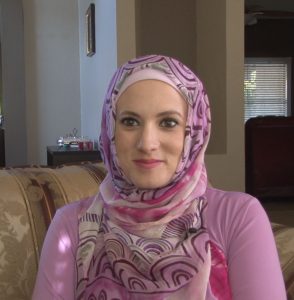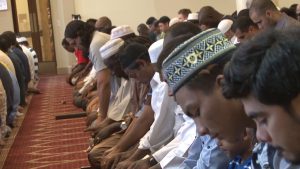- Slug: Ramadan. About 525 words.
- Ramadan q&a available. About 150 words
- Photos available (thumbnails and embeds below)
By JOEY CARRERA
Cronkite News
TEMPE – A crescent moon shines bright in the night sky, casting a celestial light. The lunar cycle signifies Ramadan, one of the most holy times for Muslims across the world.
“It’s the month in which the holy Quran was revealed,” said Tempe resident Huda Shrourou. Ramadan is a way to connect with “God, the creator.”
Muslims fast from sunrise to sunset, abstaining from food and drink.
Fasting, charity, prayer and faith – among the pillars of Islam – are emphasized during the observance, which began June 5.
Shrourou said she feels the spirit of Ramadan through her family, the local community, and beyond.
“You can definitely sense the blessing of the month knowing that billions of people are fasting alongside, with you,” Shrourou said.
Islam is the fastest growing religion in the world, according to a 2015 Pew study. Pew estimates there were 1.6 billion Muslims — one out of four people on the planet -– in 2010.
Usama Shami, president of the Islamic Community Center of Phoenix, points out Indonesia has the highest single population of Muslims. In the U.S., Pew estimated less than 1 percent of adults identify as Muslim.
Shami said the Phoenix mosque draws up to 800 worshipers every Friday, considered a holy day.
In countries where Islam reigns as the majority religion, working hours are adjusted during Ramadan, and the spirit is alive in the streets – much like Christmas in the West.
In Arizona, where Muslims are a religious minority, marking Ramadan means taking some practical steps.
Shrourou wakes up “at three-something in the morning” to begin “eating a hearty breakfast.”
She won’t eat again or drink again for 15 hours. Sometimes, she goes back to sleep.
She still maintains a full-time schedule at work but an understanding manager gives her more flexibility, including starting later than usual when she needs it.
She’s learned to manage the hunger, and it get easier over time. Hunger allows those observing Ramadan to reflect on their actions, and nourish their souls.
“The fast teaches you to be patient,” Shami said. “You’re not supposed to engage in disputes. You shouldn’t be engaged in arguments. You shouldn’t be engaging in something that makes you angry or others angry.“
The masjid, or mosque, enriches Muslims as the center of the community, especially during Ramadan. Shami said many devout Muslims try to “read the Quran in its entirety,” sometimes more than once.
It’s also where many gather in prayer after their fast is broken at the evening meal, Iftar, when the sun sets.
Muslims end their daylong fast in different ways. Shrourou said she likes to spend time with her family and friends.
“Ramadan is a time of community and family, connecting and reconnecting,” Shrourou said.
Unlike some who observe Ramadan, she doesn’t try to eat as much as she can during the evenings.
“I work, so I can’t partake in the all-night munchies, and binge eating that some people may partake in,” Shrourou said.
Shami said anyone, Muslim or not, can share a sense of community with a simple offering.
“One of the best deeds or acts is to provide food to people who are fasting,” Shami said.
^__=
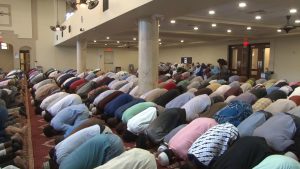
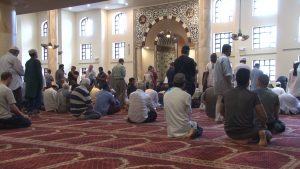
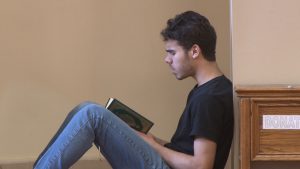
“The fast teaches you to be patient,” said Usami Shami, president of the Islamic Center of Phoenix. “You’re not supposed to engage in disputes. You shouldn’t be engaged in arguments. You shouldn’t be engaging in something that makes you angry or others angry.“ (Photo by Joey Carrera/Cronkite News)
